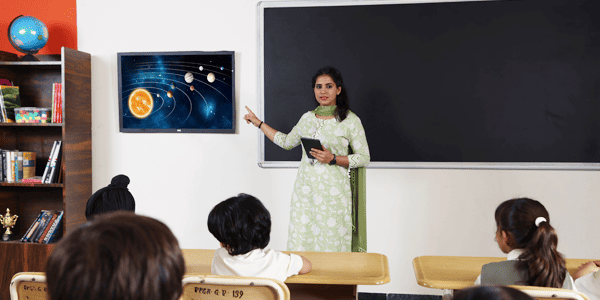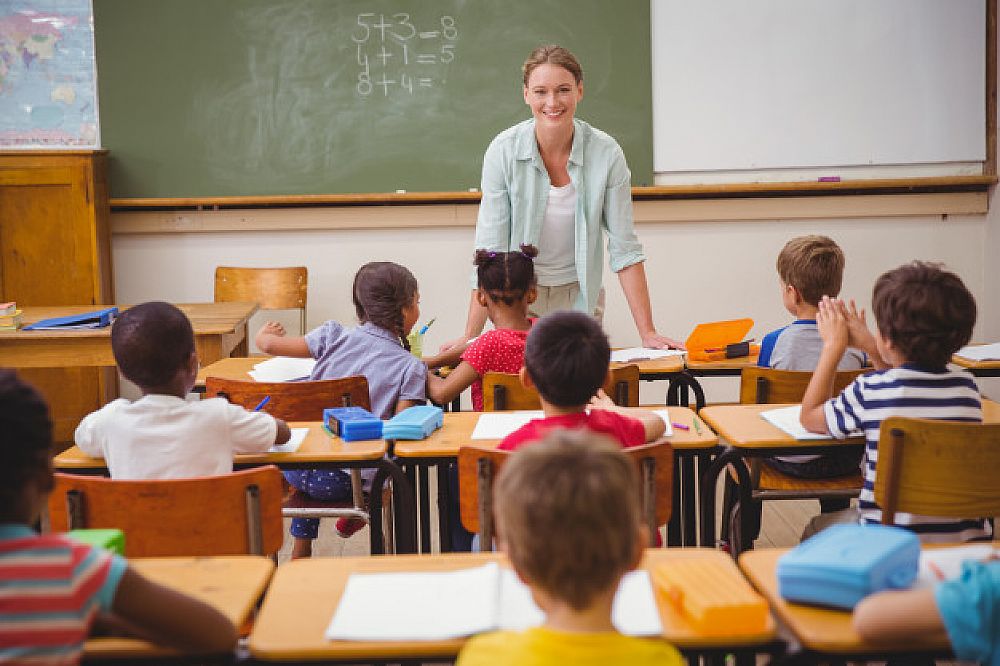Get Top Results with Primary Science Tuition Singapore from Experienced Tutors
Get Top Results with Primary Science Tuition Singapore from Experienced Tutors
Blog Article
Exploring the Various Training Strategies in Main Science Education Today
The landscape of main science education is developing, with different teaching strategies acquiring importance in modern class. Inquiry-based knowing, hands-on experiments, and the integration of modern technology are redefining just how teachers engage young minds. In addition, collective techniques and distinguished guideline are being used to satisfy the varied requirements of students, boosting both interaction and understanding. As we analyze these methodologies, inquiries occur about their performance and the ramifications for future academic practices. What might these changes in method mean for the next generation of students?
Inquiry-Based Learning
Inquiry-Based Discovering (IBL) is an instructional approach that motivates pupils to discover scientific ideas via doubting, examination, and hands-on experimentation. This method highlights the duty of pupils as active participants in their discovering, promoting important thinking and problem-solving abilities. By involving with real-world concerns, pupils become interested and determined, which boosts their understanding of scientific principles.
In IBL, teachers serve as facilitators, assisting pupils as they browse their inquiries as opposed to providing information directly. This student-centered technique enables distinction, suiting numerous learning styles and speeds. Trainees create abilities in creating hypotheses, developing experiments, and assessing information, which are crucial for scientific proficiency.
Additionally, IBL promotes collaboration amongst pupils, motivating them to share concepts and findings. This collective questions promotes social abilities and a feeling of neighborhood within the classroom. The process of inquiry motivates strength, as trainees find out to welcome failing as a tipping stone towards understanding.
Hands-On Experiments
Hands-on experiments are a vital part of efficient scientific research education and learning, matching the concepts of inquiry-based discovering. These experiments enable pupils to engage straight with scientific principles, promoting a deeper understanding with experiential knowing. By manipulating products and observing outcomes, young students can understand abstract theories in substantial methods.
Such activities promote crucial thinking and analytical abilities, as trainees assume results, conduct experiments, and analyze outcomes. This process urges them to ask concerns, improve their understanding, and establish a scientific state of mind. Hands-on experiments can be customized to diverse discovering designs, ensuring that all students have the chance to involve meaningfully with the web content.
Moreover, hands-on experiments typically urge cooperation among peers, promoting synergy and interaction abilities. Operating in teams enables students to share ideas, talk about findings, and gain from each other, which improves their general academic experience.
Integrating hands-on experiments into the primary scientific research curriculum not only enhances the discovering atmosphere however likewise cultivates a lifelong interest in science. By actively joining their education, trainees are most likely to establish an enthusiasm for scientific query that prolongs beyond the classroom.

Innovation Assimilation
Incorporating technology right into key scientific research education has actually become progressively crucial in fostering student interaction and boosting discovering outcomes. Making use of electronic devices, such as interactive simulations, online labs, and educational software application, provides students with possibilities to discover scientific ideas in cutting-edge methods. These sources help with a much deeper understanding of complex subjects by permitting learners to envision and manipulate variables that would be impractical in a traditional class setup.
In addition, technology combination encourages individualized finding out experiences. Students can advance at their own speed, reviewing challenging principles with multimedia resources, which accommodate various understanding designs. This versatility not just supports private development but additionally click here for info grows a sense of autonomy in students.
Additionally, innovation works as a bridge to real-world scientific research, linking pupils with existing research study and specialist contributions. Access to clinical journals and on the internet data sources broadens trainees' viewpoints on scientific questions and fosters essential thinking abilities.
Collaborative Knowing
Collective learning plays a crucial duty in primary science education and learning by promoting synergy and interaction abilities amongst students. This strategy motivates students to interact, share understanding, and take part in problem-solving, which boosts their understanding of scientific concepts. By joining team activities, pupils discover to articulate their concepts, pay attention to varied perspectives, and bargain solutions, every one of which are important skills in both real-world and scholastic contexts.

Study suggests that joint knowing can lead to boosted inspiration and engagement in scientific research topics, as trainees locate enjoyment in common experiences (primary science tuition Singapore). Furthermore, this strategy prepares students for future collective endeavors, furnishing go to this site them with the abilities required for effective synergy in college and expert environments. Inevitably, embracing joint discovering in main science education and learning can significantly enhance the understanding experience and advertise a deeper understanding of scientific query
Differentiated Instruction

Separated guideline can show up in different methods, such as differing the material, processes, or products of knowing. Teachers might make use of tiered tasks that offer varying degrees of intricacy, allowing pupils to function at their particular look at this web-site readiness levels. In addition, versatile grouping techniques can facilitate cooperation amongst trainees with various capabilities, fostering peer knowing.
Assessment plays a vital duty in this approach, as it educates instruction and aids teachers recognize each trainee's unique demands. Formative analyses, such as observations and tests, can direct educators in adjusting their approaches to improve learning results. primary science tuition Singapore. Ultimately, by applying distinguished guideline in primary scientific research education, teachers can grow a more effective and equitable knowing atmosphere, encouraging all students to reach their full possibility in comprehending clinical phenomena
Final Thought
In recap, the varied teaching methods in key scientific research education, including inquiry-based discovering, hands-on experiments, modern technology integration, collective discovering, and set apart instruction, collectively add to a much more efficient understanding setting. These methods promote vital reasoning, analytic abilities, and a much deeper understanding of clinical principles. By implementing these techniques, instructors can create engaging and supportive classrooms that address the varied needs of students, eventually promoting a lifelong rate of interest in scientific research and boosting scholastic achievement.
Inquiry-Based Learning (IBL) is a pedagogical method that encourages students to discover clinical principles with questioning, investigation, and hands-on experimentation.Joint understanding plays a crucial function in primary scientific research education and learning by promoting synergy and communication abilities amongst students.Study suggests that collaborative learning can lead to increased inspiration and interaction in science topics, as trainees find satisfaction in shared experiences.In cultivating a comprehensive learning atmosphere, distinguished instruction emerges as a key approach to fit the varied requirements and capacities of trainees in key science education and learning. Eventually, by implementing separated instruction in main science education and learning, instructors can cultivate an extra equitable and efficient discovering setting, empowering all trainees to reach their complete potential in recognizing scientific phenomena.
Report this page